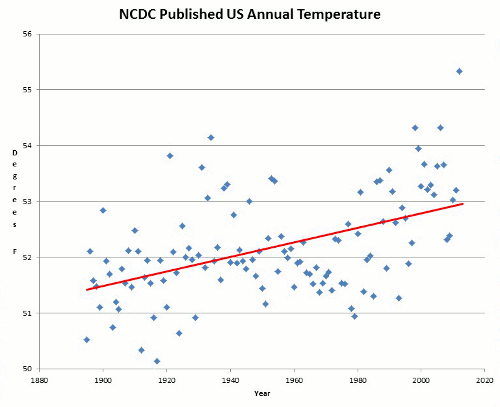To show how the BBC has been influenced in the way it now views climate change: Dr. David Bellamy, a botanist, conservationist, author of 35 books and host to approximately 400 nature programs on the BBC was unceremoniously dumped by the BBC after stating some doubts about the effectiveness of wind turbines as methods of power generation, when as a guest presenter on the networks “Blue Peter” children’s program:
WHEN I first stuck my head above the parapet to say I didn't believe what we were being told about global warming, I had no idea what the consequences would be. I am a scientist and I have to follow the directions of science, but when I see that the truth is being covered up I have to voice my opinions.
The sad fact is that since I said I didn't believe human beings caused global warming, I've not been allowed to make a television program.
It is also not just that the levels of reporting have become unbalanced but so to has the way it is reported:
Many in the "science is settled" camp claim that the skeptics are untrustworthy -- that they are either cranks or otherwise at the periphery of their profession, or that they are in the pockets of Exxon or other corporate interests. The skeptics are increasingly being called Deniers, a term used by analogy to the Holocaust, to convey the catastrophe that could befall mankind if action is not taken. Increasingly, too, the press is taking up the Denier theme, convincing the public that the global-warming debate is over. – Lawrence Solomon (executive director of Urban Renaissance Institute, a division of Energy Probe Research Foundation.)
I myself have also noted a certain formula to the writing by individuals being printed by the media, and I believe it tends to follow this pattern:
1. Use the word “Deniers” instead of “Sceptics “when talking about any climate change opposition.
2. Quickly link these deniers to tobacco industry or holocaust to establish mistrust in their opinion.
3. Claim that all research into denying climate change is funded by “Big Oil”.
4. Show a couple of notable sites like “George C. Marshall Institute” and “Heartland Institute” that have drawn part of their funding from Exxon to prove linkage.
5. Explain that climate variation is normal, but exclaim “ Global Warming is Real!” to reinforce message.
6. Try to discredit the now famous Oregon Partition by claiming “most of the 31,000 graduates have nothing to do with climate science.” (Avoid mentioning about the 2500 that were used by the IPCC - especially that less than 10% were of climate speciality and some of the unusual profession some signers had) Thus creating the illusion that the climate scientists are only on the side of AGW believers.
7. Use a dubious quote from and unnamed source to discredit a world renowned scientist.
8. Tar the political opposition as “the party of climate change deniers”, (despite the government probably having many in their ranks too).
9. Finish off article with a scare that there are “No areas to hide on the planet” or the like when it comes to climate change.
Take as an example this article: Who is behind climate change deniers? by David McKnight written on 2nd August, 2008 and published in all the Fairfax papers:
It is almost a perfect example of writing an alarmist article to a formula. Not really surprising it appeared in "The Age" then is it?
Sunday, August 30, 2009
Subscribe to:
Post Comments (Atom)














No comments:
Post a Comment